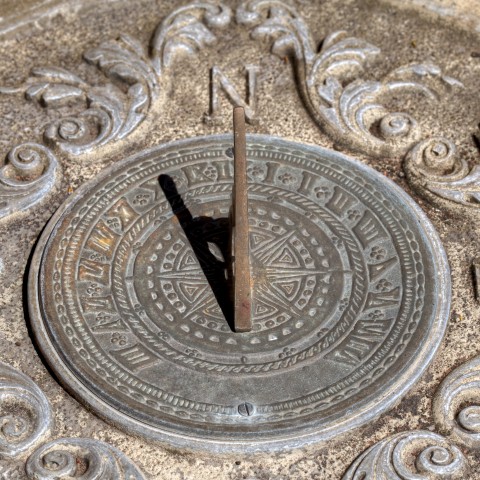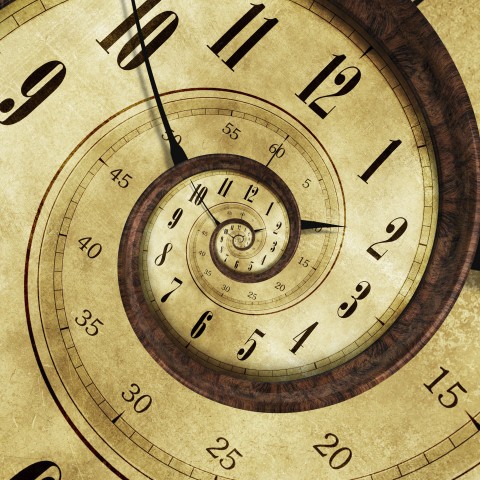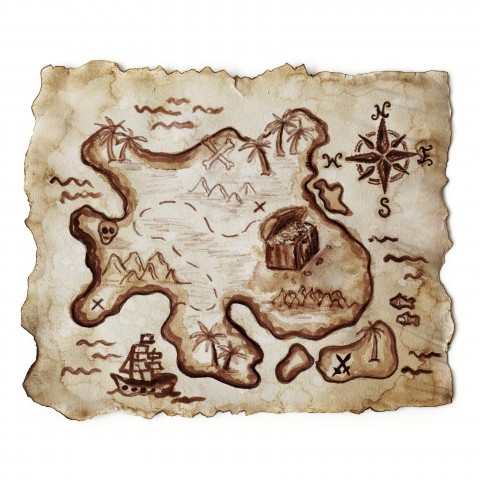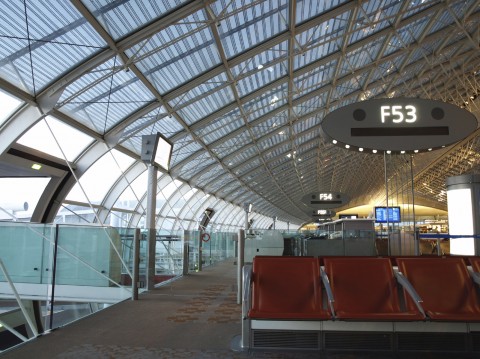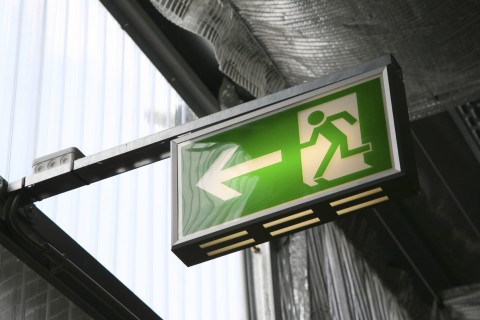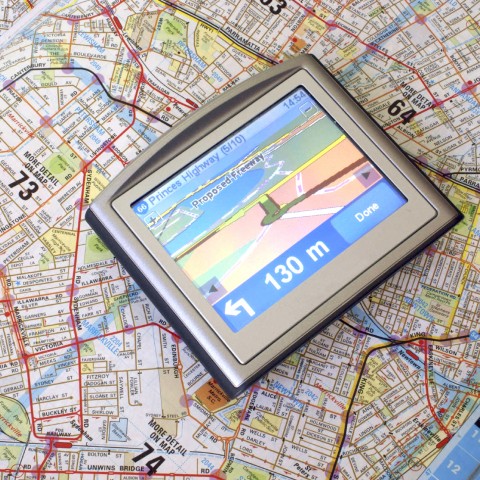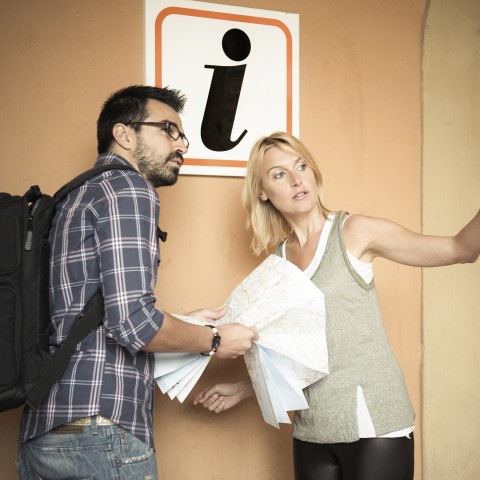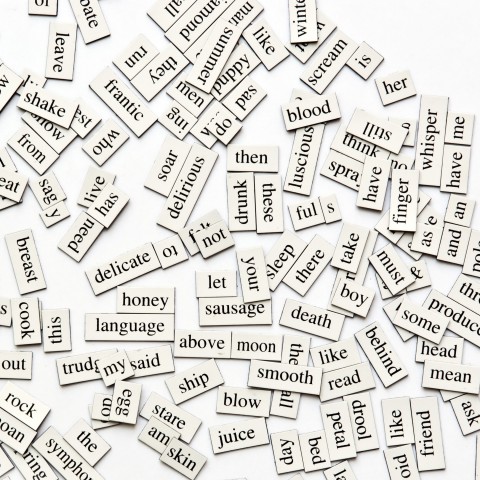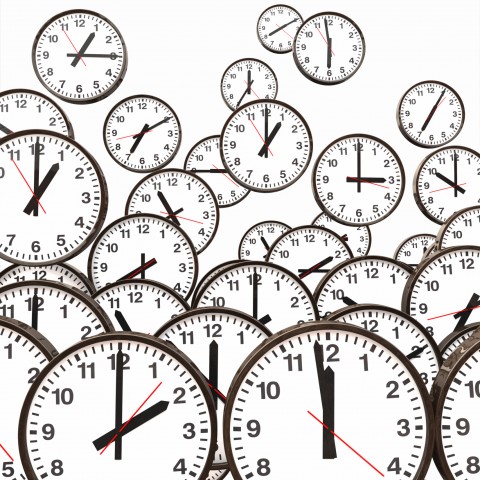
Do you ever get this feeling when speaking French? You have all the words you need to make the perfect sentence, but they just don’t fit together. This is what happens when you’re not comfortable with the word order and need to learn about the specifics of the correct French sentence structures.
It may seem confusing at first, but bear with me for a moment and I trust that you’ll find it to be quite simple. Except for a few tricky exceptions, the structures are always the same and are often very similar to English. With all the tips and tricks from this article and a bit of practice, it will come naturally in no time!
In this guide, we’ll explain everything you need to know about the French sentence structure, from basic sentences for beginners to impressive complex statements for sophisticated talkers.
 Table of Contents
Table of Contents
- Ordering Words in French
- Simple Sentences with Subject, Verb, and Object
- How to Build Complex Sentences
- Asking Questions
- Negative Sentences
- Practical Cases
- Le Mot De La Fin
1. Ordering Words in French

Rule #1: French is SVO
Like many other languages throughout the world, French is what we call an SVO language. This means that the default word order is: Subject – Verb – Object.
- {Je mange une pomme.} (“I eat an apple.”)
Rule #2: Don’t Skip the Subject
And unlike similarly rooted languages, such as Spanish or Italian, we don’t usually drop the subject of the sentence, even when it’s a pronoun.
- I speak French.
- (Yo) hablo Frances. (Spanish)
- (Io) parlo Francese. (Italian)
- Je parle Français.
Rule #3: Rules are Meant to be Broken
These are mainly the French word order rules of simple declarative sentences, but as soon as we enter imperative, interrogative, or negative sentences territory, it gets a bit wilder. I mean…it’s French we’re talking about.
And one more thing: Master Yoda is allowed to use OSV sentences and still sound cool, but it’s forbidden to the rest of us.

Le Français je parle. (“French I speak.”)
2. Simple Sentences with Subject, Verb, and Object
In the following sections, we’ll work with the most common type of sentences: declaratives.
A declarative sentence is used to make a statement. It declares or states something, and ends with a period. We can’t use declarative sentences to ask questions or give orders.
Let’s get back to our basic declarative sentence: Je parle Français. (“I speak French.”)
In this sentence, I’m stating that I speak French.
Like we mentioned before, there are mainly two things you need to know about declarative sentences and their basic word order in French:
- The word order is Subject + Verb + Object.
- We don’t drop the subject, even when it’s a pronoun.
To these basic rules, I would also add:
- Verbs are conjugated. Their ending depends on the subject.
- Ils parlent Français. (“They speak French.”)
- Nous parlons Français. (“We speak French.”)
- → You can learn more about conjugation in our Complete Guide on French Conjugation. It’s freely available on FrenchPod101.com.
- Objects must agree with the subject. Their ending also varies.
- Il est Américain. (“He is American.”)
- Elle est Américaine. (“She is American.”)
/! The main exception to the S+V+O rule is the imperative mood, where the structure becomes: V+O.
- Vous parlez Français. (“You speak French.”) → Parlez Français. (“Speak French.”)
- Nous mangeons des pommes. (“We eat apples.”) → Mangeons des pommes. (“Let’s eat apples.”)

Elle mange des pommes. (“She eats apples.”)
3. How to Build Complex Sentences
Now that we have the basics covered, it’s time to add more ingredients into the mix and spice it up with adverbs, adjectives, and pronouns to gradually make our sentence more exciting!
1 – Adding Adjectives:
Adjectives describe nouns to make them more interesting. Let’s see where to place them in a sentence.
According to French word order, adjectives usually go AFTER the noun they describe.
- Une pomme verte (“A green apple”)
However, some of the most common adjectives go BEFORE the noun.
- Une grosse pomme (“A big apple”)
Put in a sentence, it looks like this:
- Il mange une pomme verte. (“He’s eating a green apple.”)
- → Learn more about adjectives with our full guide and massive list of the Top 100 French Adjectives.
2 – Adding Adverbs:
Adverbs work together with and describe verbs, adjectives, or other adverbs to modify their meaning or make a sentence more precise.
When the adverb modifies a verb, it usually comes AFTER this verb. The word order is: S + V + Adv.
- Je parle lentement. (“I speak slowly.”)
Then, if we have an object, it would be: S + V + O + Adv.
- Je parle Français couramment. (“I speak French fluently.”)
When the adverb modifies an adverb or adjective, it usually comes AFTER the verb and BEFORE the adverb or adjective. The word order is: S + V + Adv + Adv.
- Je parle très lentement. (“I speak very slowly.”)
When we get to this level of complexity, things start becoming a bit more flexible.
For instance, both sentences are correct:
- Je parle Français couramment. (“I speak French fluently.”)
- Je parle couramment Français. (“I speak French fluently.”)
However, it comes with exceptions, such as the very common bien (“well”) which is placed BEFORE the object.
- Je parle bien Français. (“I speak French well.”)
- Je parle vraiment bien Français. (“I speak French very well.”)
Je parle Français bien.
- → Everything you need to know about adverbs you’ll find in our Complete Guide on French Adverbs, with a list of the most common adverbs you should know.

Not too confused with the colors, are you?
3 – Adding Pronouns
Brace yourself, this is where French language word order gets tough. Understanding the word order of pronouns in French isn’t always a walk in the park, and we’ll really just scratch the surface here.
Subject pronouns don’t move:
- Nicolas mange une pomme. (“Nicolas eats an apple.”)
- Il mange une pomme. (“He eats an apple.”)
Same thing for stressed pronouns:
- Il mange une pomme avec ses amis. (“He eats an apple with his friends.”)
- Il mange une pomme avec eux. (“He eats an apple with them.”)
However, direct and indirect pronouns are not as well-behaved.
- Nicolas donne une pomme. (“He gives an apple.”)
- Nicolas la donne. (“He gives it.”)
- Il donne une pomme à ses amis. (“He gives an apple to his friends.”)
- Il leur donne une pomme. (“He gives them an apple.”)
- Il la leur donne. (“He gives it to them.”)
- → For more information about pronouns, you can go through our Extensive Guide on French Pronouns, with lots of examples and grammar points.
And what happens when we put everything together?
- Je leur parle Français très lentement. (“I speak French with them very slowly.”)
- Il leur donne gentiment une pomme verte. (“He gently gives them a green apple.”)
4 – Adding Prepositions
Prepositions are words that usually precede a noun or pronoun and express a relationship to another element of the sentence. Prepositional phrases often answer questions such as:
- Where? Il mange une pomme dans la cuisine. (“He eats an apple in the kitchen.”)
- When? Il mange une pomme après le dîner. (“He eats an apple after dinner.”)
- How?
- Il mange une pomme avec eux. (“He eats an apple with them.”)
- Il mange une pomme sans se presser. (“He eats an apple without rushing.”)
- Il mange une pomme avec soin. (“He eats an apple with care.”)
Prepositions can be placed BEFORE or AFTER the verb. In some cases, you can freely choose, and in other situations, only one option will make sense.
- Après le dîner, je mange une pomme. (“After dinner, I eat an apple.”)
- Je mange une pomme après le dîner. (“I eat an apple after dinner.”)
- Il mange une pomme sans se presser. (“He eats an apple without rushing.”)
- Sans se presser, il mange une pomme. (“Without rushing, he eats an apple.”)
In these two examples, both versions are correct.
But sometimes, you need to know the verb for the preposition to be relevant:
- Je rentre à la maison. (“I go back home.”)
You would not say “Home, I go back,” and it would sound equally awkward in French.
- Je donne une pomme à mon ami. (“I give an apple to my friend.”)
Similarly, it wouldn’t make sense to mention the recipient before the action is stated.
To combine prepositions, you can simply apply the same logic when choosing where to place them:
- Après le dîner, je rentre à la maison sans me presser. (“After dinner, I go back home without rushing.”)
- Sans me presser, je mange une pomme avec eux dans la cuisine. (“Without rushing, I eat an apple with them in the kitchen.”)

These are not the words I ordered!
4. Asking Questions
The word order in French questions isn’t always SVO.
Questions can take several different forms in French, depending on whether you’re talking or writing, as well as how formal you want to be.
Let’s go back to our apple-eating example: Tu manges une pomme.
Here’s how to say: “Do you eat an apple?”
1. Tu manges une pomme ? (SVO)
2. Est-ce que tu manges une pomme ? (Est-ce que + SVO)
3. Manges–tu une pomme ? (VSO)
Now I guess the last one is confusing: Why do we suddenly invert the subject and verb?
This form is used only in writing or in very formal speech. Among friends, with random strangers, or in most business settings, you would stick to one of the first two options. I’d say both are equally common.
Now, what if we add some interrogative pronouns and adverbs?
Let’s see how to use words like: Quand (“When”), Qui (“Who”), Comment (“How”), Où (“Where?”).
“Where do you eat?”
1. Tu manges où ?
2. Où est-ce que tu manges ?
3. Où manges–tu ?
“When do you eat?”
1. Tu manges quand ?
2. Quand est-ce que tu manges ?
3. Quand manges–tu ?
5. Negative Sentences
Luckily, this is the last case, because I’m seriously running out of colors!
In this section, we’ll have a look at the word order in negative sentences.
Negative structures are placed around the verb and before the preposition or object.
- Je ne mange pas de pommes. (“I don’t eat an apple.”)
- Je ne mange pas dans la cuisine. (“I don’t eat in the kitchen.”)
- Je ne mange pas vite. (“I don’t eat fast.”)
The same thing goes for other negative structures:
- Je ne mange plus dans la cuisine. (“I don’t eat in the kitchen anymore.”)
- Je ne mange jamais dans la cuisine. (“I never eat in the kitchen.”)
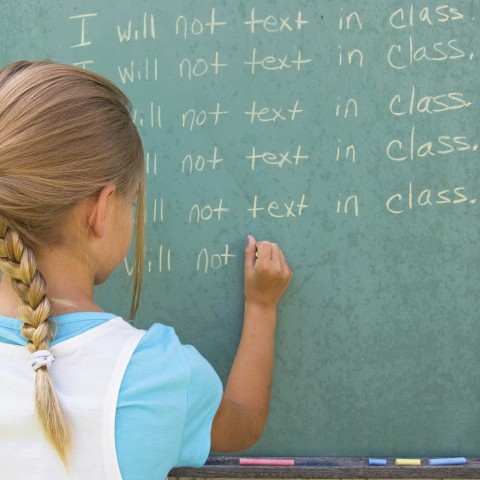
That’s how I learned negative sentences!
6. Practical Cases
Now, it’s time to practice everything we’ve been learning today! We’ll take it slow and do it step-by-step. At any time, feel free to go back through the article if you’re having doubts.
Try to come up with the French translations for these sentences. You can use a conjugation table if you’re not sure how to deal with parler (“to speak”).
1. “We speak.” – _________________
2. “We speak French.” – _________________
3. “We speak French slowly.” – _________________
4. “We speak French slowly with her.” – _________________
5. “We speak with her in the kitchen.” – _________________
6. “After dinner, we speak with her in the kitchen.” – _________________
7. “We never speak with her in the kitchen.” – _________________
8. “Do you speak with her in the kitchen?” – _________________
“Where do I put these verbs again?”

“Where do I put these verbs again?”
[SPOILER] And here are the translations:
- “We speak.” – Nous parlons
- “We speak French.” – Nous parlons Français.
- “We speak French slowly.” – Nous parlons Français lentement.
- “We speak French slowly with her.” – Nous parlons Français lentement avec elle.
- “We speak with her in the kitchen.” – Nous parlons Français avec elle dans la cuisine.
- “After dinner, we speak with her in the kitchen.” – Après dîner, nous parlons avec dans la cuisine.
- “We never speak with her in the kitchen.” – Nous ne parlons jamais avec elle dans la cuisine.
- “Do you speak with her in the kitchen?” – Est-ce que tu parles avec elle dans la cuisine ?
7. Le Mot De La Fin
In this guide, you’ve learned a lot about French word order and the correct French sentence structures, from the basics to the most advanced parts such as French pronoun order.
Did we forget any important structure you would like to learn about? Do you feel ready to assemble ambitious sentences, using everything you’ve learned today?
As we’ve seen with the exercises, a good way to practice French word order is to start easy and slowly build up to complex sentences, one piece at a time.
Make sure to explore FrenchPod101.com, as we have plenty of free resources for you to practice your grammar and learn new words. Our vocabulary lists are also a great way to review the words and learn their pronunciation.
Remember that you can also use our Premium PLUS service, MyTeacher, to get personal one-on-one coaching. Practice talking about word order in French with your private teacher so they can give you personalized feedback and advice, and help you with the pronunciation.

About the Author: Born and bred in the rainy north of France, Cyril Danon has been bouncing off various jobs before he left everything behind to wander around the wonders of the World. Now, after quenching his wanderlust for the last few years, he’s eager to share his passion for languages.









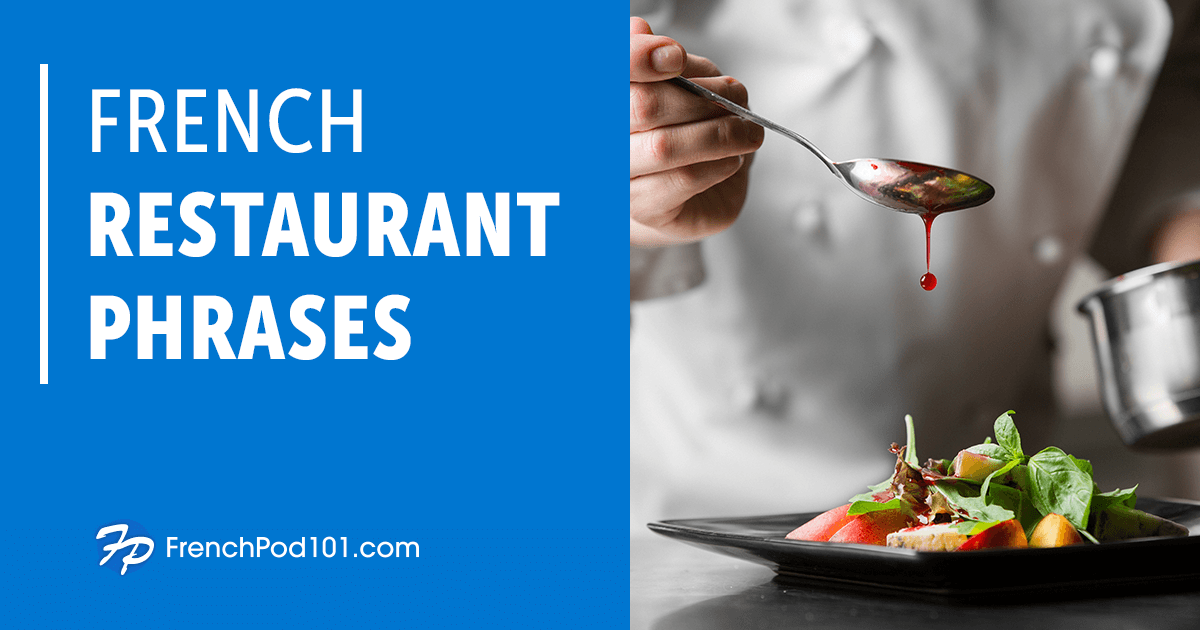


 Table of Contents
Table of Contents


